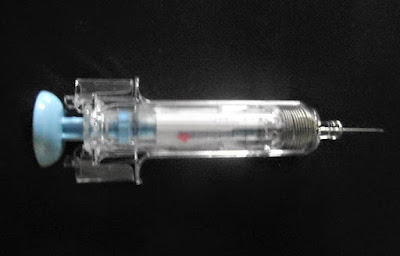This blog may help people explore some of the 'hidden' issues involved in certain media treatments of environmental and scientific issues. Using personal digital images, it's also intended to emphasise seasonal (and other) changes in natural history of the Swansea (South Wales) area. The material should help participants in field-based modules and people generally interested in the natural world. The views are wholly those of the author.
Friday, 13 November 2020
Commodification of Doubt?
Production of a safe and effective vaccine for Sars-CoV-2 is one thing. Getting people to take it, in sufficient numbers, is another. Melinda Mills has written an insightful opinion piece on, how public health officials and governments, might deal with the problematic 'infodemic' of falsities about vaccines (https://www.theguardian.com/commentisfree/2020/nov/11/vaccine-infodemic-covid-pandemic-anti-vaxxers-campaigns-persuade). I was particularly taken by her use of the term (apparently taken from a book of Oreskes and Conway, 2010) 'merchandising of doubt'. This essentially describes how ideas (like opposition to vaccines) can be 'sold' (sometimes by offering 'alternatives', e.g. homeopathy, that make the seller money). I, of course, with my 'commodification of doubt' (I know it sounds like the title of a James Bond film), have gone one stage further. I feel that the creation of doubt (you don't even need to totally convince), generates a commodity. You can not only 'sell' it, but trade it, in other other ways (such as using it to damage people's opinions of Science, Medicine, Pharmaceuticals or even Democracy). Mills is absolutely right to maintain that attempts to counter antivaxxers will not be won by simply putting out 'information heavy', counter-arguments on electronic media. Conspiracy theorists appear to have had great success when their messages are a) simple and b) striking. Mills advocates encouraging people to participate in vaccination programmes, by engaging with them in a variety of ways (on media but also in clinics), and honestly talking them though their expressed concerns (I know this will be labour intensive). Otherwise, the creation of doubt will stop many from participating (at least initially, until 'they have seen how it goes').
A POST JOG CLARIFICATION
Just in case people misread what I am trying to say. I am not, for one minute, suggesting that doubts are always inappropriate. Knowledge often advances via doubts. Generally, in science and medicine, we deal with varied shades of grey, rather than distinct blacks and whites. I do feel, however, that there are legitimate doubts and doubts raised for ulterior motives (sometimes financial/commercial and sometimes to achieve political or celebrity ends). Distinguishing the two can be hard enough for experienced, trained individuals but has become very problematic for the general public. There has been an unfortunate tendency, I think, for the spurious raising of doubt to be 'weaponised'.
Subscribe to:
Post Comments (Atom)
-
I n the UK and US, a pparently popular and successful vegan/vegetarian restaurants are reportedly closing or adding meat to their menus ( ...
-
Early ripening fruit may seem convenient but some folk think it confirms environmental stress. There's also a possibility th...


%20mating%20NWCW.jpg)


No comments:
Post a Comment